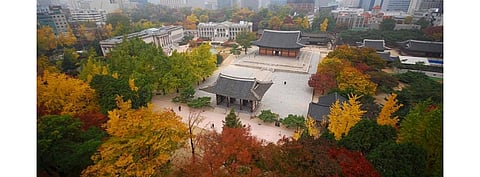

The South Korean electricity market is now officially open to renewable energy power purchase agreements (PPA) with the country's Ministry of Trade, Industry and Energy allowing domestic electricity consumers to purchase electricity from renewable energy sources, as part of the RE100 initiative.
The RE-100 initiative encourages businesses across the globe to opt for 100% renewable energy. K-RE100 is the Korean chapter of the group.
Under the rules, both industrial and general consumers of electricity need to register with the state run Korea Energy Agency after which they can participate in the K-RE100 system. Renewable energy sources approved under the same are solar, wind, hydropower, ocean energy, geothermal energy, and bio-energy.
A report by The Korea Bizwire explains that electricity from renewable sources will be procured through the green premium system which means electricity can be bought by giving premiums to the Korea Electric Power Corp (KEPCO) through a bidding process. Another method to source clean energy will be entering into 3rd party power purchase agreements (PPA) with suppliers, with KEPCO as the intermediary.
Organizations can also opt to purchase renewable energy certificates (REC) or go in for self-generation of renewable energy.
According to the ministry the K-RE100 system is expected to further strengthen domestic companies' global competitiveness and accelerate energy transition.
The news report further added that KEPCO is now setting up a REC transaction platform to implement the RE100 initiative and plans to launch a trial project within Q1/2021.
Companies participating in the K-RE100 system will be recognized for their efforts to reduce GHG emissions with the government also promising to prepare some support measures to promote the use of renewable energy in the country, said MOTIE while adding that it is revising relevant guidelines on detailed energy sources and methods of reducing emissions.
South Korea aims to go carbon neutral by 2050, as announced by the country's President Moon Jae-in in October 2020 and the initiatives under K-RE100 are a step in the direction to encourage heavy energy users to lower their emissions while contributing to the national goal.
9th basic electricity plan cleared
Under the 9th Basic Plan for Electricity Supply and Demand for 2020-2034 cleared by the government in late December 2020, South Korea will aim to have renewable energy account for 40.3% of the country's nameplate electricity generation capacity reaching 77.8 GW, growing from 20.2 GW in 2020. Its actual contribution to national power generation will increase from 3.3% in 2020 to 8.6% in 2034, according to The Korea Herald.
By 2034, South Korea will close 30 coal fired power plants and 24 will be repurposed into liquified natural gas power facilities while no new nuclear power plants will be built. Lifetime of the ones currently operational or under construction will not be extended.
A draft of the plan was earlier released by the ministry under which the renewable energy share was aimed to be 42% (see South Korea To Aim For 42% RE Share By 2034).
